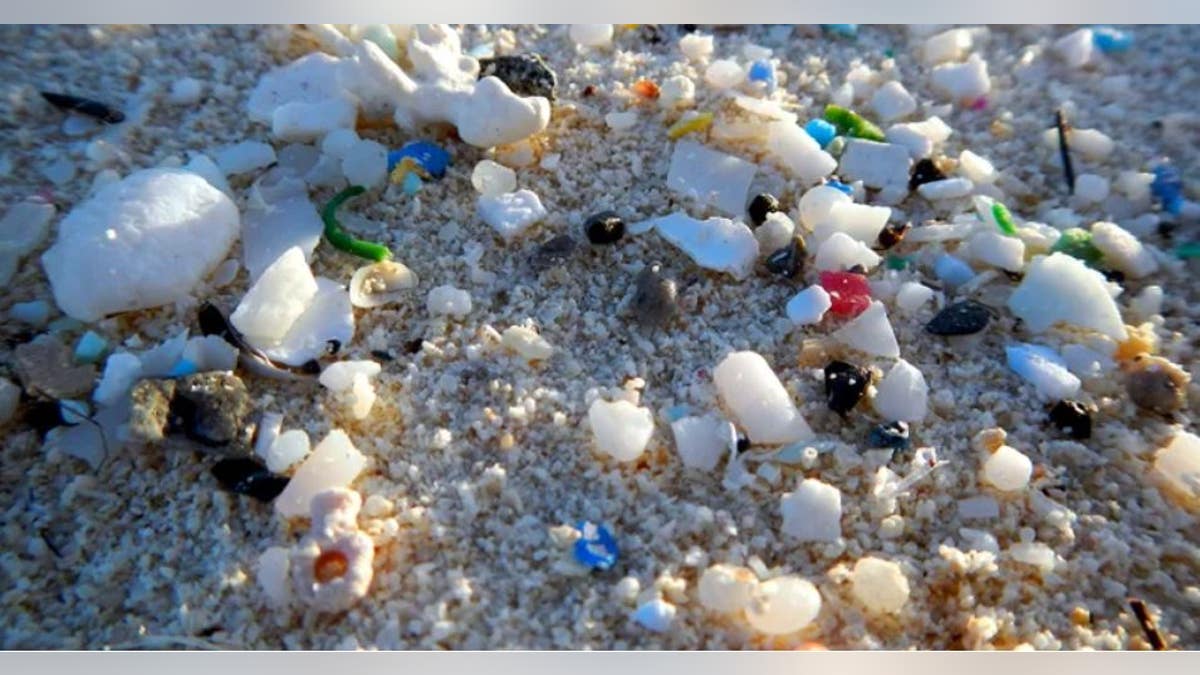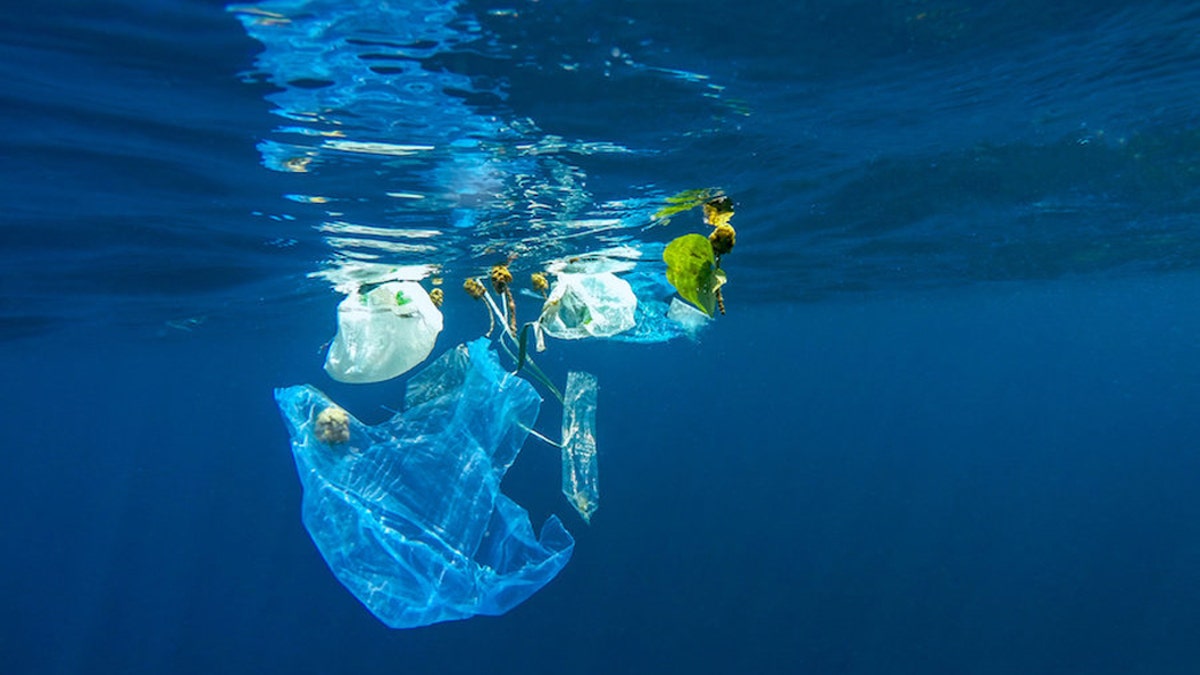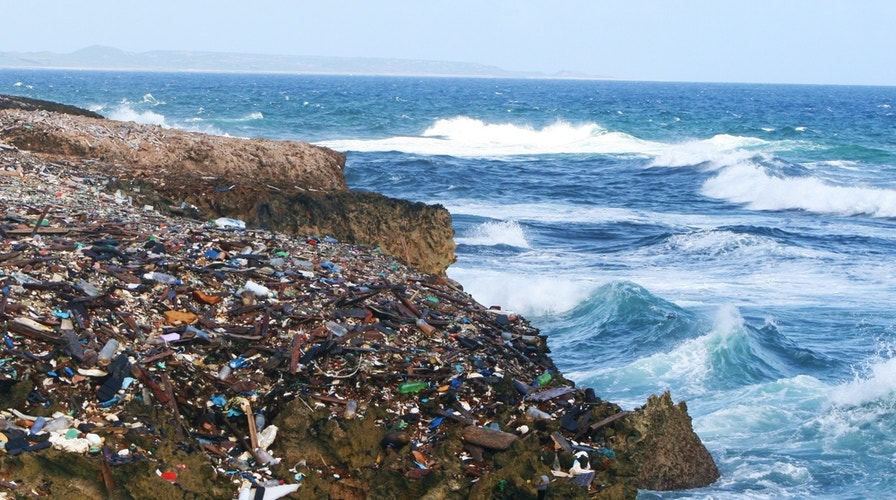Fox News Flash top headlines for July 27
Fox News Flash top headlines are here. Check out what's clicking on Foxnews.com.
Plastic waste in the oceans is expected to triple by the year 2040, more than tripling compared to current levels unless drastic measures are taken, according to a new study.
The research, which comes from The Pew Charitable Trusts and SYSTEMIQ, found that 29 million metric tons of plastic pollution will enter the ocean each year, up from 11 million metric tons, or 110 pounds of plastic per every meter of coastline around the world.
The experts also found that the coronavirus pandemic has added to the problem as "single-use plastic consumption has increased during the pandemic, according to the International Solid Waste Association," according to a statement accompanying the study.

Plastic waste on shore. (NOAA) (NOAA)
PLASTIC POLLUTION IN WORLDS' OCEANS COULD HAVE $2.5 TRILLION IMPACT, STUDY SAYS
The study has been published in the journal Science.
Despite the bleak outlook, which could eventually total 600 million tons, or the equivalent of 3 million blue whales, the researchers offered solutions that could cut the volume entering the oceans by "more than 80 percent."
The solutions include reducing plastics with alternatives, designing packaging for recycling and expanding waste collection in middle- and low-income countries. Boosting recycling and reducing plastic waste exports were also mentioned.

Plastic pollution in ocean. (aryfahmed / Adobe Stock)
"There's no single solution to ocean plastic pollution, but through rapid and concerted action we can break the plastic wave," Tom Dillon, Pew's vice president for environment, said in the statement. "As this report shows, we can invest in a future of reduced waste, better health outcomes, greater job creation, and a cleaner and more resilient environment for both people and nature."
UN REPORT ON WORLD'S OCEANS IS DAMNING: 'WE'RE ALL IN BIG TROUBLE'
These changes could have significant economic impacts, saving $70 billion for governments by 2040, while also reducing greenhouse gas emissions related to plastics by 25 percent and creating an additional 700,000 jobs.
“Our results indicate that the plastic crisis is solvable. It took a generation to create this challenge; this report shows we can solve it in one generation,” said Martin Stuchtey, SYSTEMIQ’s founder and managing partner added. “We have today all the solutions required to stem plastic flows by more than 80 percent. What we now need is the industry and government resolve to do so.”
A study published in April 2019 found that plastic pollution in the world's oceans could have a $2.5 trillion impact, disrupting "almost all marine ecosystem services," suffocating every industry it touches.
Additional research, published in May 2019, found plastic pollution in oceans may be suffocating the planet – by harming the tiny microorganisms "thought to be responsible for up to 10 percent of ... total global oxygen production."
